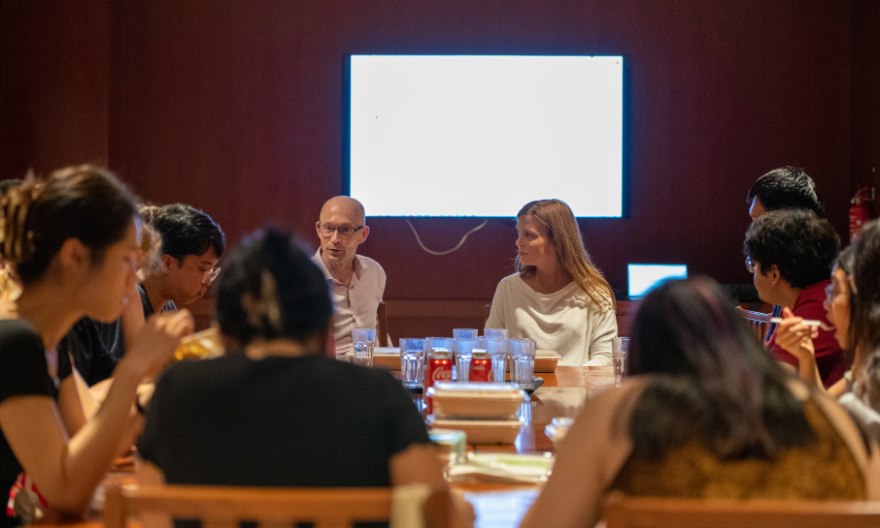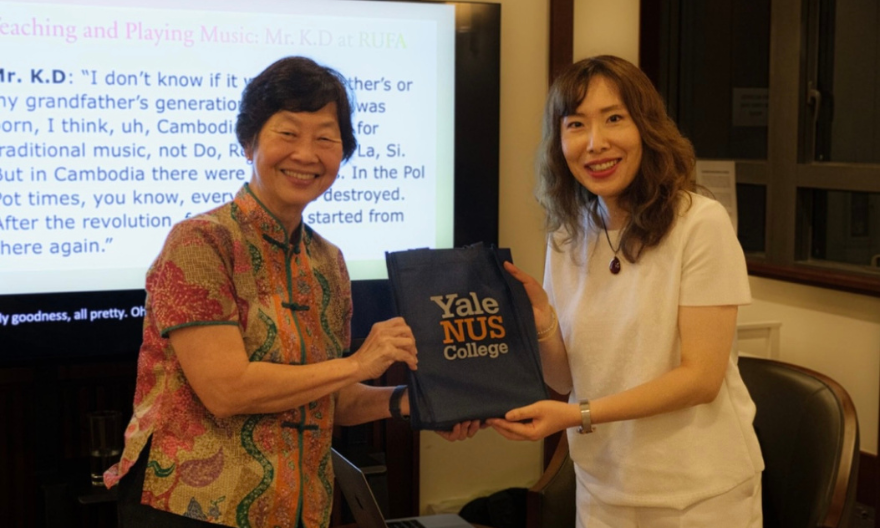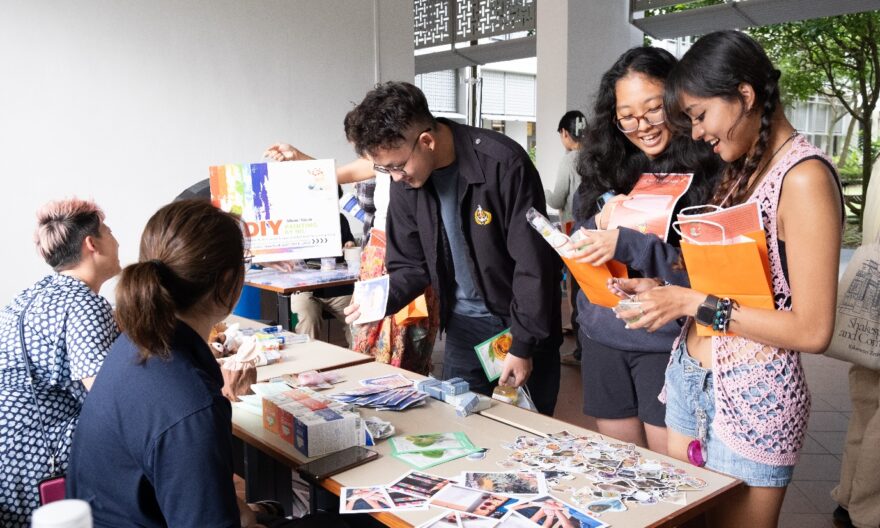Peer counsellors provide a listening ear to students in-need
Student organisation trains Yale-NUS students to be supporters of mental health on campus
When Abel Teng (Class of 2022) was a first-year in Yale-NUS College, he realised that his “mental health was in the worst state it had ever been in [his] life”. It was then that he understood the importance of peer support and found himself seeking out opportunities to be a source of help to peers in-need.
He signed up to be a peer counsellor with P.S. We Care (PSWC) — a student-led organisation that spearheads the selection and training of Yale-NUS students to be on-campus mental health advocates and listening ears for fellow students. Founded in 2013 by the College’s inaugural class, PSWC currently hosts a team of 18 student members.

Abel Teng (Class of 2022) is a peer counsellor at Yale-NUS. Image provided by Abel.
During the semester, PSWC offers peer counselling every Monday to Saturday from 9pm to 12am, after the College’s Counselling Centre has closed for the day.
Indeed, peer counsellors are a unique and crucial element of the mental health care system at Yale-NUS.
“With the rise in mental health concerns in colleges across the globe, scaling resources to meet campus’ needs requires tapping into the most untapped resource — students. Our peer counsellors are an essential part of the College’s mental health support network. Especially since there are a number of students who may not reach out to professional counsellors due to perceived stigma of seeking help,” shared Yale-NUS Head of Counselling Goh Zhengqin.
Resonating with Head of Counselling Zhengqin’s sentiments, Abel agreed that peer counsellors serve an important purpose on campus. Said Abel, “There is a limited number of professional counsellors and students may be discouraged by the long wait of getting an appointment. PSWC hopes to plug that gap by providing immediate and easy access to peer counsellors, who can better empathise from the perspective of students themselves.”
Nevertheless, peer counselling is not an easy job. Students seeking peer listening services may walk in with a diversity of complex and sensitive issues: grief, social isolation, academic anxiety, and more. As such, peer counsellors oftentimes wrestle with a fair share of challenges.
 P.S. We Care peer counsellors during a weekly meeting. Image provided by Joseph Chin (Class of 2021).
P.S. We Care peer counsellors during a weekly meeting. Image provided by Joseph Chin (Class of 2021).
“The biggest challenge was setting boundaries in my role as a peer counsellor versus a friend. How I would react to a situation as a friend versus a peer counsellor is very different and thus it was difficult to navigate when situations discussed in a PSWC setting started to bleed into everyday conversations,” explained Freya Lalani (Class of 2022), a graduating senior who has stayed on in PSWC since her second year.
Reflecting on the challenges, Freya shared that what was most helpful were PSWC’s compulsory training sessions that equipped her with the active listening skills to be “fully present in a conversation” and to “ask the right kind of questions”.

Freya Lalani (Class of 2022) is a peer counsellor with P.S. We Care. Image provided by Freya.
At present, a licensed counsellor from the College’s formal counselling team serves as a staff advisor to PSWC, helping provide case supervision, skills training, and inviting guest speakers for talks.
One alumnus who benefitted from training with PSWC is Joseph Chin (Class of 2021), who was co-president of the team from 2020 to 2021. Joseph is currently working as a research assistant at the Centre of Sleep and Cognition in the NUS Yong Loo Lin School of Medicine. There, he researches on the effects of mindfulness interventions on personal well-being and sleep.
 Alumnus Joseph Chin (Class of 2021) was a co-president of P.S. We Care from 2020 to 2021. Image provided by Joseph.
Alumnus Joseph Chin (Class of 2021) was a co-president of P.S. We Care from 2020 to 2021. Image provided by Joseph.
“I found that introducing mindfulness exercises like breathing and grounding techniques were helpful in getting students to feel safer and more comfortable, which then aids the conversation that happens. Introducing mindfulness as a tool that can help my counsellees is something that I resonated with and is definitely part of the reason why I am in this current field of research,” Joseph shared.
Joseph aspires to pursue a Master’s or PhD programme in Clinical Psychology, where he hopes to not only practise clinically, but to be a champion of mental health for the masses and the underprivileged as well.
Likewise, Abel, a graduating senior, hopes to carry the torch beyond Yale-NUS and advocate for better mental health support in the workplace.
“The workplace environment tends to be extremely individualistic and competitive, and I do believe that training better empathy and listening skills would make the space more conducive and welcoming. As such, I strive to create systems of peer support where individuals are empowered to listen and be there for their colleagues.”




